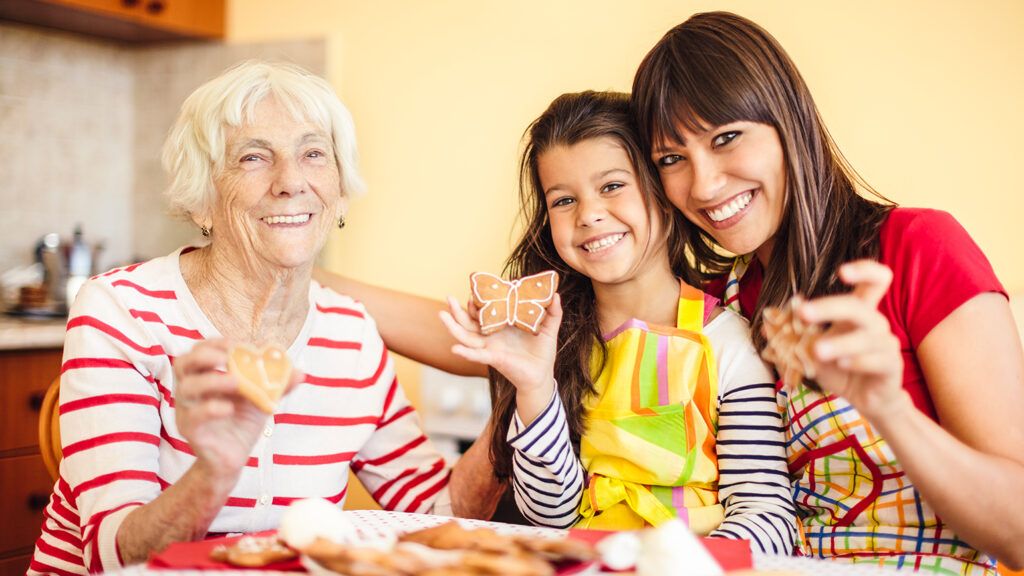Julie Hayes is the Editorial Assistant at Benjamin Rose Institute on Aging
The holiday season may leave you more frantic than holly jolly. You may schedule social events, plan elaborate meals, search for the “right” gifts, clean (repeatedly) and put up lights and decorations. This can be enough to wear anyone out, but when combined with caregiving, holiday tasks can be overwhelming. The stress of getting everything done can interfere with one of the great joys of the season: spending quality time with the most cherished people in our lives. With a little planning, organization and some thoughtful choices, you can focus on the things that matter most to you.
If you want to keep your spirits high while ensuring that your loved one is comfortable and secure during the holidays, consider the following suggestions:
1. Make a list (and check it twice)
It’s virtually impossible to remember everything when tasks start to mount. If you wait until the last minute, you could find yourself missing a crucial ingredient, scrambling to wrap presents, or arriving late to your own party. Drawing up a list of everything you want to get done, and a timeline for completion, can help you stay organized and feel less rushed. Keeping a daily calendar is a great way to stay on top of things.
2. Reach out for help
If your holiday to-do list feels out of control, it is okay to ask for assistance! Find some tasks that others can handle while you concentrate on your loved one’s care. If friends or family are already planning a trip to the grocery store or the mall, they may be happy to pick up a few things for you. If you’re hosting a dinner, ask your guests if they can contribute a side dish or dessert. Or if you and your loved one are attending a holiday celebration as guests, talk with the host beforehand to ask for help in making your loved one feel comfortable in that environment.
3. Involve your loved one in preparations and activities
If your loved one is able to participate in preparations, find ways for him or her to contribute. This can lessen your workload while allowing you to enjoy the festivities together. Research shows that if people are coping with memory loss or dementia, giving them opportunities to utilize their strengths and abilities can reduce their mental and emotional strain, which in turn can lower your own strain as a caregiver (Katherine S. Judge, Sarah J. Yarry, Wendy J. Looman, David M. Bass; Improved Strain and Psychosocial Outcomes for Caregivers of Individuals with Dementia: Findings from Project ANSWERS, The Gerontologist, Volume 53, Issue 2, 1 April 2013, Pages 280–292). Look for activities that appeal to your loved one, such as choosing music, setting the table, wrapping gifts or creating a centerpiece.
4. Make your celebrations simpler
If things still feel unmanageable, it is perfectly reasonable to narrow your focus to a specific holiday, or cut back on your plans. Take some time to prioritize what is most important to you and your loved one. Even if you usually host more than one holiday or event, see if someone else can take one on this year. For any celebration you do host, determine the guest list size and number of activities you feel you can handle. If you’re traveling for the holidays, you might skip decorating at home this year, and instead focus on your trip. Remember that there is no “right way” to celebrate. You don’t need to squeeze every tradition in at once, and sharing the season with the people you love matters more.
5. Support is the best gift you can give yourself
Research from Benjamin Rose Institute on Aging shows that caregiver burnout can often lead to social isolation, depression, anxiety, poor health and an inability to keep up with responsibilities (Bass, D.M., Judge, K.S., Snow, L.A., Wilson, N.L., Looman, W.J., McCarthy, C.A., Morgan, R., & Abloorh-Odjidja, C., Kunik, M.E. (2012). Prevalence and predictors of depression, care-related strain, and unmet needs among caregivers of patients with dementia. The American Journal of Geriatric Psychiatry, 20, 239-247).
While the holiday season can add even more challenges for the caregiver, it doesn’t have to be a burden. Leaning a little on others can help enormously and allows a much-needed respite. Don’t be afraid to reach out to others for help, and consider taking advantage of resources in your area that support caregivers.





